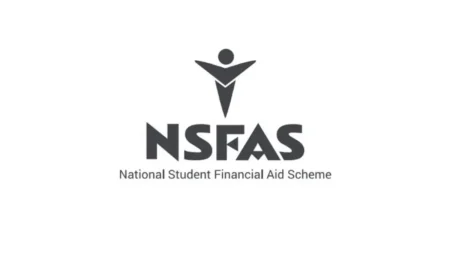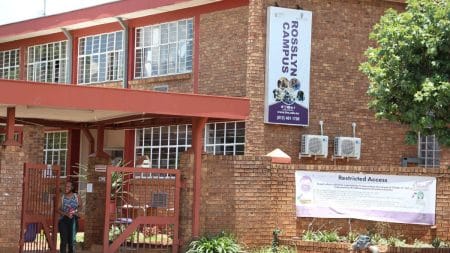The National Student Financial Aid Scheme (NSFAS) plays a pivotal role in ensuring that students from economically disadvantaged backgrounds have access to education. For students enrolled in public Technical and Vocational Education and Training (TVET) colleges, NSFAS offers a vital lifeline, covering a wide range of expenses to ensure that financial constraints do not hinder their academic and professional success.
In this article, we will break down how NSFAS operates for TVET college students, who qualifies, what it covers, and the application process to guide prospective applicants through the system.
Who Qualifies for NSFAS Funding at TVET Colleges?
NSFAS aims to support South African citizens or permanent residents who are unable to afford the costs of attending TVET colleges. To qualify for funding, students must meet the following criteria:
South African Citizenship or Permanent Residency: Only South African citizens or permanent residents are eligible for NSFAS support.
Registration at a Public TVET College: Students must be registered, or intending to register, at a public TVET college.
Household Income Limit: The household combined income must not exceed R350,000 per year. However, for students with disabilities, the income limit is raised to R600,000 per year.
SASSA Grant Recipients: Students who are recipients of social grants from the South African Social Security Agency (SASSA) are automatically eligible for NSFAS funding.
Minimum Educational Requirements: Applicants must have passed at least Grade 9 to be eligible for funding.
What Does NSFAS Cover for TVET College Students?
NSFAS funding for TVET students is structured as a bursary, which means the money does not need to be repaid, provided that the student meets the academic progression requirements. The bursary covers several key areas of a student’s education, including:
Registration and Tuition Fees: NSFAS pays the registration and tuition fees directly to the TVET college. This means that students do not need to pay for these upfront costs.
Accommodation: The accommodation allowance varies depending on the student’s location relative to the college:
Urban Areas: Up to R25,200 per year.
Peri-urban Areas: Up to R18,900 per year.
Rural Areas: Up to R15,750 per year.
College Hostels: Up to R33,000 per year.
Transport: For students who live more than 10 km away from the institution, NSFAS provides a transport allowance of up to R7,350 per year.
Personal Care/Incidental Allowance: NSFAS allocates R2,900 per year (about R241 per month) for personal expenses such as toiletries, clothing, and other daily necessities.
Living Allowance: Students are also given a living allowance of R15,000 per annum to help cover general living expenses.
Learning Material Allowance: NSFAS provides R525 per month to assist with the costs of books and other study materials.
Support for Students with Disabilities: Additional funding is available for students with disabilities, which can be used to purchase assistive devices, pay for tutors, or hire interpreters for academic support.
How to Apply for NSFAS Funding
The application process for NSFAS funding is simple, but it is important for students to follow the correct procedure to ensure their applications are successful.
Online Applications: Students can apply for NSFAS funding through the official NSFAS website or at designated application centers.
Required Documents: Applicants need to provide certain documents to verify their identity and eligibility:
Proof of Identity (ID document or passport).
Proof of Household Income (such as payslips, tax returns, or an affidavit).
Proof of Academic Records (previous school reports).
SASSA grant recipients only need to provide their ID to confirm their status.
Application Deadlines: Application windows usually open at the beginning of the academic year and may reopen for additional trimesters or semesters. It is crucial for students to keep track of deadlines to avoid missing out.
How Are Allowances Paid?
NSFAS provides funding in a structured manner to ensure students receive the support they need. Here’s how the allowances are paid:
Tuition and Registration Fees: These are paid directly to the TVET college, so students do not need to make upfront payments.
Allowances: The allowances for accommodation, transport, and personal care are typically paid directly to students. Payment is often managed through an NSFAS-managed bank account or e-wallet system, with funds transferred either monthly or per academic term.
Academic Progression and Duration of Funding
NSFAS provides funding for the full duration of a student’s qualification, provided they meet the college’s academic progression requirements. This means that students must continue to pass their courses and maintain a certain academic standard to continue receiving funding.
However, students can only receive NSFAS funding for one qualification at a time. After completing their N6 qualification at a TVET college, they may apply for NSFAS funding to pursue a university qualification, but they cannot be funded for another TVET qualification.
Appeals and Support for Declined Applications
If a student’s NSFAS application is declined, there is a process for appeal. Students can appeal the decision through their myNSFAS account or by contacting the financial aid office at their TVET college.
In addition, TVET colleges offer support to students throughout the application process, guiding them on how to submit their applications and follow up on the status of their funding. However, it’s important to note that the college does not control the allocation or payment of funds.
Check also: NSFAS NSF-Blocked: What It Means and How to Fix It
NSFAS is a crucial resource for TVET college students in South Africa, offering financial support that covers essential expenses like tuition, accommodation, and study materials. This allows students from low-income families to pursue vocational education without the burden of financial strain. Through this comprehensive funding system, NSFAS removes barriers to education, helping students build a brighter future through skills development.
For students looking to apply for NSFAS funding, it’s important to meet the eligibility requirements, gather the necessary documents, and submit applications on time. With NSFAS support, TVET college students can focus on their education and take full advantage of the opportunities available to them.










